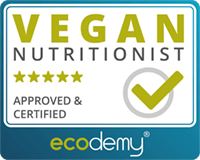Which food additives are okay, and which should be avoided? Are they all vegan?
Among other problematic matters noticed in the food industry, food additives and preservatives have an equally significant role in the process, preservation and presentation of manufactured food products. Are they healthy for us to consume?

Visit activeplantbased for professional help and plant-based nutrition training.
A food additive is “any substance, the intended use of which results or may reasonably be expected to result, directly or indirectly, in its becoming a component or otherwise affecting the characteristics of any food”.
Definition given by the United States Food and Drug Administration (FDA).
From that, we understand those food additives are substances added to (processed) food to help maintain or improve its safety, freshness, taste, and texture. Salt is the most common food additive and has been used for centuries for preserving food. Alongside salt is sugar and vinegar.
What are preservatives?
Preservatives are a type of food additive that helps minimise certain chemical reactions, such as lipid oxidation, when interfering with the growth of bacteria, yeast and moulds in the food.
Other (types of) food additives can be used for colouring and sweetening. Carmine, for example, is used for artificially colouring certain foods and cosmetic products red. It is obtained from the aluminium salt of carminic acid.
You might have come across carmine before under the names cochineal, natural red 4, C. I. 75470 or E120. That particular dye is extracted from the crushed shell of small insects; therefore, it is not vegan.
Food additives in relation to health
Some food additives are, in fact, natural and beneficial to health. Examples include herbs, spices, fruit extracts, and vegetable oils. Many natural food additives are known to be beneficial to health and can offer a variety of vitamins, minerals, and antioxidants.
There are also some artificial ones, such as artificial sweeteners, colours, flavours, and preservatives, that are best to be avoided and here is why…
- They may end up being toxic to your body.
- Some are even known to disrupt hormone balance.
- They are highly associated with diabetes and obesity, especially in young children.
Extensive and highly frequent consumption of such ingredients may cause allergies, cancer, liver problems, headaches and other health issues.
A study conducted in 3-year-old and 8/9-year-old children of the general population shows that consuming artificial colourings (food additives) and/or a sodium benzoate preservative increased hyperactive behaviour.
When shopping for food for yourself or your family, it is best to always read the list of potential ingredients you would like to avoid and know what you’re consuming.
Here you will find the Food Additive Database by the European Commission, with all the food additives and all possible information regarding their characteristics, conditions of use, alternative names and anything else you wish to know.
How are they getting tested?
Food additives are only tested on animals, which is questionable from an ethical point of view. Therefore, just because those tests are done on animals do not show any side effects doesn’t mean that they are 100% suitable for human tolerance too.
Also, most additives are toxicologically tested individually and not in combination with others. Because of that, we cannot be sure that when we ingest more than one additive together, it will not cause any reactions.
Always question why a particular food needs extra colouring or flavouring added.
Here is a list of the most common food additives and preservatives to keep an eye on and avoid:
- Monosodium Glutamate (MSG)
- Sodium Nitrates and Nitrites
- BHA and BHT (antioxidant preservatives used to keep foods from spoiling)
- Guar Gum is used to thicken and/or bind together foods. It is mostly found in ice cream, salad dressings, sauces, and packaged soups.
- High-fructose Corn Syrup is made from corn and is frequently found in sodas, juices, candy, breakfast cereals and snacks.
- Artificial Sweeteners
- Artificial Flavoring
- Carrageenan
- Sodium Benzoate
- Xanthan Gum
What is GMO?
GMO stands for Genetically Modified Organism. That refers to an organism whose DNA has been modified with the help of genetic engineering technology. GMO corn is one of the most commonly known genetically modified crops.
But corn, in particular, is a type of crop that produces proteins that, while not harmful to humans or animals, are toxic to certain insect pests, making the crops more tolerant to bacterial threats.
Are GMOs good for your health?
While research has not shown that consuming genetically modified food imposes any risks on human health, concerns have been voiced regarding cancer, allergies, and the general long-term safety of consuming such foods.
Here is a nice quote to remember:
‘’Always eat as close as it is to what nature intended.’’

If you are indeed looking to decrease your intake, here are some things to consider:
- Read the packaging labels. Even if it seems complicated initially, you will get better with time, and additives repeat quite a lot.
- Educate yourself on the different names these additives appear under, what they mean and how harmful they really are.
- Opt for water or homebrewed tea and coffee instead of sodas and bottled drinks.
- Avoid the ‘All or Nothing’ approach. Living a processed food-free life is not easy or wanted by most people. It is better to put in a conscious effort to minimise your processed food consumption than give up everything altogether.
While all these food additives and preservatives may benefit the foods themselves, they can also pose a health risk if consumed excessively.
Avoiding processed food may be difficult for the average person; however, trying to cut back on it will significantly minimise your additive intake automatically. Knowing what goes into your body is highly important too.
Thank you for reading and supporting our love of writing.
─ the activeplantbased pub 🐇
Sources used.
- 12 Common Food Additives — Should You Avoid Them? (healthline.com)
- https://www.differencebetween.com/difference-between-food-additives-and-vs-preservatives/
- https://www.who.int/news-room/fact-sheets/detail/food-additives
- https://en.wikipedia.org/wiki/Sodium_benzoate
- https://www.thelancet.com/journals/lancet/article/PIIS0140-6736(07)61306-3/fulltext

